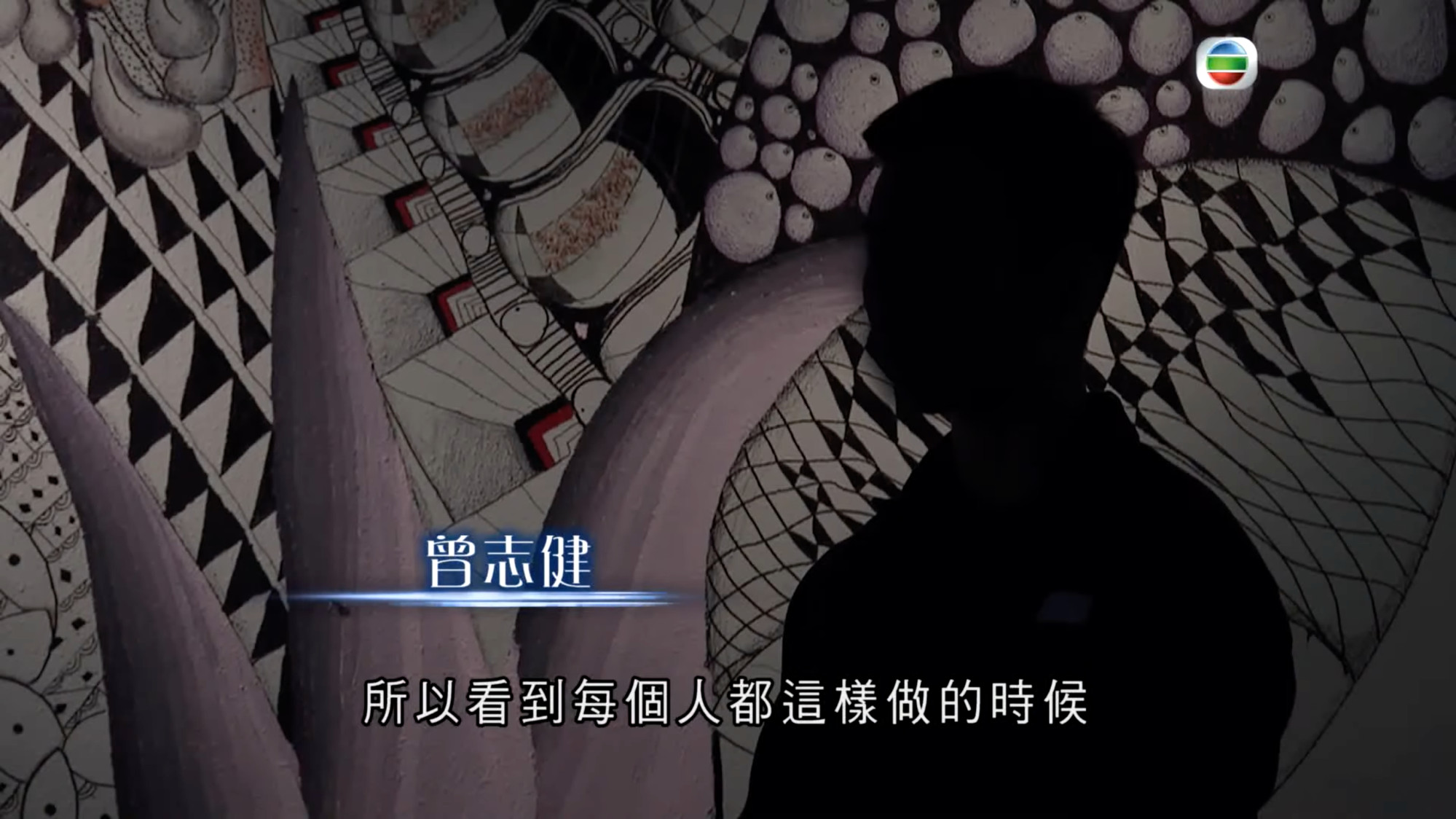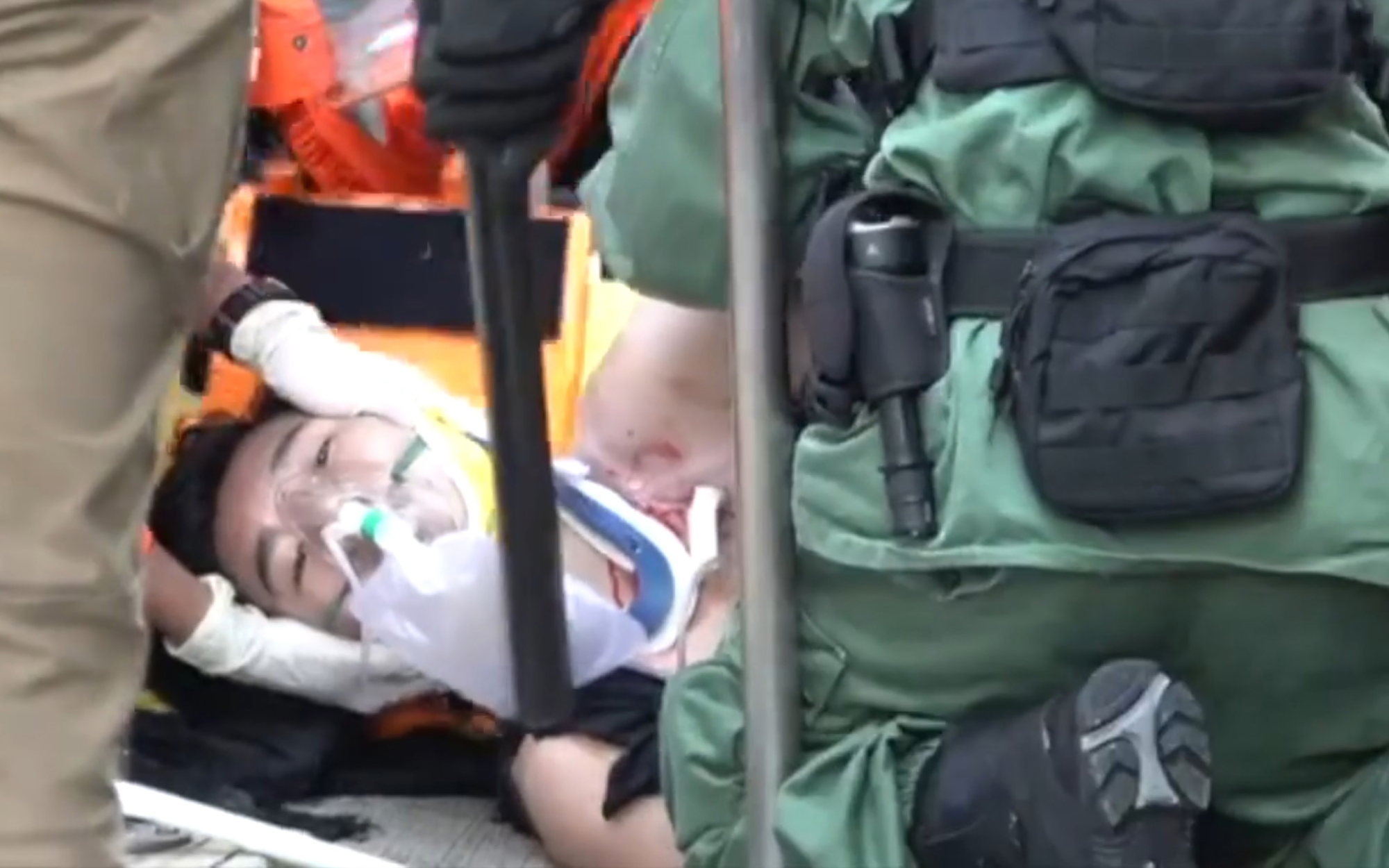‘Think clearly before you do anything’: why jailed Hong Kong protester’s TV interview has divided opinions
Previous episodes touched on national security laws in Britain, the United States and Singapore. A note at the end said Hong Kong police provided information for the show.
Without commenting on the case, the Correctional Services Department said inmates took part in a targeted rehabilitation programme, dubbed Project PATH, on a voluntary basis.
“[They] will not get any additional remission in sentence by such participation,” a department spokesman said.

A voice-over in Tsang’s episode, which was two minutes long, explained his progression in the protest movement, from first attending demonstrations to show support to it later becoming a habit.
“The atmosphere at the time was becoming more and more radical, so when I saw everyone was doing the same thing, I went closer and closer to the front line,” he said.
Hong Kong student shot by police during protest pleads guilty to attacking officer
Tsang was shot by a police officer with a live round during a protest in Tsuen Wan. According to prosecutors, he was among a group of protesters who “strenuously” attacked police with hammers, pliers, rods and umbrellas.
Tsang was released on bail after being charged with rioting and assaulting a police officer, but failed to report to authorities in October 2020 as required.
Who were the young faces of Hong Kong’s democracy movement and where are they now?
He and three other fugitive protesters – Fung Ching-wah, 24, Ansen Wong, 23, and Alex Wong Chun-yin, 17 – unsuccessfully sought refuge at the US consulate later. They were eventually arrested as they attempted to reach a boat bound for Taiwan.
“[While waiting to escape], I experienced no electricity, insufficient food, and no bed to sleep on. When we were changing our hiding locations, I experienced hiding inside a cardboard box and being transported as cargo,” he said in the TV interview.
The programme’s timing also drew attention as it coincided with statements by activist Agnes Chow Ting, who revealed on social media on Sunday that she would jump bail and remain in Canada after being allowed to leave the city in September to study for a master’s degree. She was required to report to police this month as part of a national security case.

Chow also claimed she had to write “letters of repentance” expressing regret over her past political activities and vowing to sever ties with former allies as among the conditions to get her passport back. She said she also had to take a patriotic day trip to Shenzhen accompanied by police officers.
Centrist lawmaker Tik Chi-yuen said the methods used in the cases involving Tsang and Chow had never been seen before. He urged authorities to explain whether they had new methods to handle such cases and the rehabilitation of those involved to avoid speculation.
“Hong Kong has its ways of doing things, if you copy the methods used by mainland China, it may be counterproductive … it will also lead to concerns as to whether these promotional efforts are done involuntarily,” he said.
Hong Kong police can ask for bail ‘repentance letters’, patriotic trips: adviser
Lau Siu-kai, a consultant for semi-official Beijing think tank the Chinese Association of Hong Kong and Macau Studies, said that in his view, the government simply wanted to use Tsang’s case to warn other young people against taking part in criminal activities.
He said he believed the treatment of Tsang’s case was not out of the ordinary and likened the interview to those given by other inmates joining the department’s rehabilitation programmes.